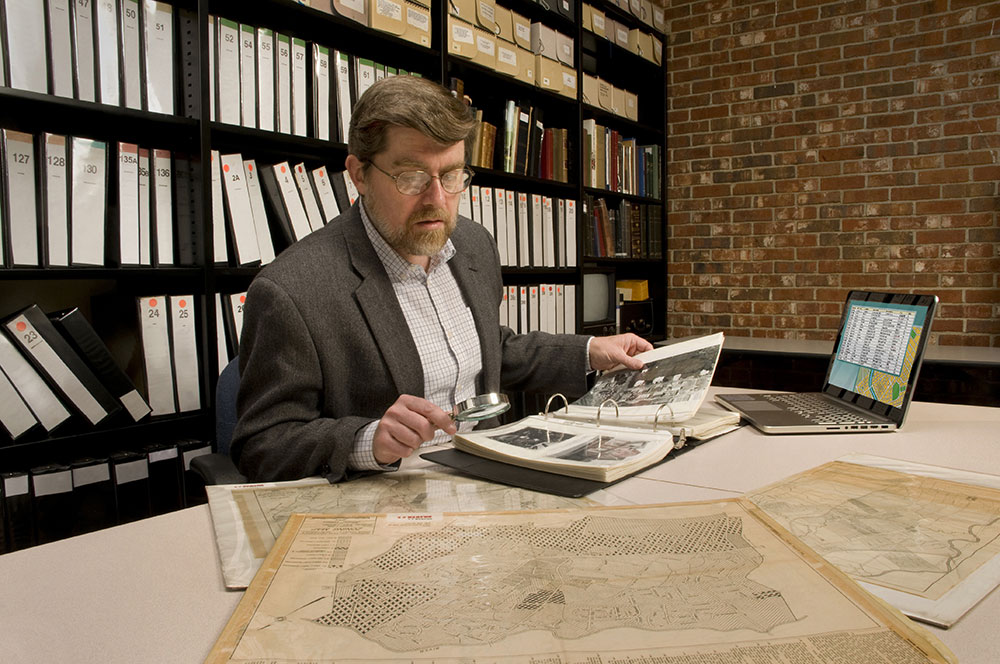
Apprentice archivists help gather, maintain, and preserve documents and other historical and cultural artefacts for individuals, organisations, and governments.
You will be accountable as an archivist for conserving content and making it accessible to customers, increasingly in digital format.
Archives may include historical books, records, maps, plans, photographs, prints, films, cassettes, videos, and computer-generated material. It is used by researchers, academics, other professional staff, and the general public.
Responsibilities
Throughout your apprenticeship, you may help:
- store materials correctly and keep them in good condition
- use archive management software to date, catalogue and index materials
- create and set up programmes to digitise records and materials
- help people use the archives
- make records available to users in formats such as photocopies, microfiche and online
- carry out research
- give talks and organise presentations, displays and exhibitions
- negotiate the buying or donation of archive material.
Salary
- The salary for an apprentice archivist is £21,000 per year.
- ARA recommends a minimum salary of £28,256 for archivists with experience. This should rise to a minimum of £33,488 for archivists with some management-level responsibilities.
- Salaries for middle management archivists should start at £41,861. For senior management, salaries should start at £57,560.
Working hours
You will typically work 38 to 40 hours per week, 8am to 6pm.
Shift work or flexible working hours may be necessary for public service archives, especially in local government archives, where record offices may share opening hours with local libraries.
In the civil service, local government, and public sector, career breaks, part-time employment, and flexible working are all alternatives.
Working environment
You could work in an office.
Your working environment may be physically demanding, cramped and dusty.
Qualifications
Qualifications you can achieve as an apprentice archivist include:
- Level 7 Archivist and Records Manager – Entry requirements will be set by employers. This qualification typically takes 36 months to complete as a mix of learning in the workplace and study with an approved university.
Skills
On an archivist apprenticeship, you’ll learn:
- to be thorough and pay attention to detail
- an interest and knowledge of history
- analytical thinking skills
- administration skills
- the ability to use your initiative
- customer service skills
- the ability to work well with others
- concentration skills
- to be able to use a computer and the main software packages confidently.
Employers
Many archivists are employed by local government. Opportunities are also available with:
- The National Archives and the National Records of Scotland
- The British Library and the national libraries of Scotland and Wales
- the Public Record Office of Northern Ireland (PRONI)
- cultural institutions such as museums and art galleries
- universities
- large charities
- central government and government agencies
- hospitals
- religious foundations
- media organisations
- professional organisations
- specialist repositories within the private sector in large corporations, businesses and industrial organisations
- private institutions, families and individuals.
Professional development
Once qualified, you are urged to continue your professional development to advance your skills, broaden your professional knowledge, and build a network of contacts.
Depending on your abilities and experience, you may qualify for membership in the ARA as a Foundation (FMARA), Registered (RMARA), or Fellow (FARA) via the ARA’s professional development programme. It is based on a competence framework. To qualify, you must submit a portfolio of evidence indicating how you meet the requirements for each level of membership (and professional qualification) you apply for. In addition, you must observe the ARA code of professional ethics and revalidate your membership level every five years.
You may apply for certification via the Information and Records Management Society after five years of industry experience or three years plus a recognised professional qualification (IRMS). Accreditation allows you to use the post-nominal letters AMIRMS. A written application, a shorter summary application, and an interview are required to apply.
You’ll need to remain updated on new technologies and digital preservation methods throughout your career. The ARA organises and participates in many events, such as courses, presentations, and seminars, which are overseen by local and regional sections. It is also possible to do further study at the PhD level.
Career prospects
As an archivist, your opportunities for development to high-level jobs may be limited since you are part of a small professional network. You will probably experience various roles and scenarios during your working life. Although long-term career prospects are usually favourable, pursuing progress may need some flexibility geographically, and in the organisation, you work for.
Professional membership in the ARA at the Registered (RMARA) or Fellow (FARA) level, as well as IRMS Accreditation, may help further your career by proving your high level of talent, experience, and knowledge, as well as your dedication to the profession.
Before becoming a full-fledged archivist, many people work as assistant archivists. However, as your career grows, you may develop a specialist interest, primarily if you work for a large archive service with several divisions.
Advancement to senior jobs with more visible management duties is possible. These professions often entail the management of funds, staff, and strategy. Therefore, improving your management skills may improve your prospects of progression.
Working in archiving, conservation or records management may help archivists advance their careers. Conservation of archives, genealogy, and historical research are all interconnected topics of study.
